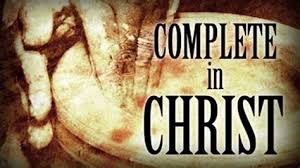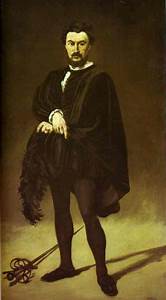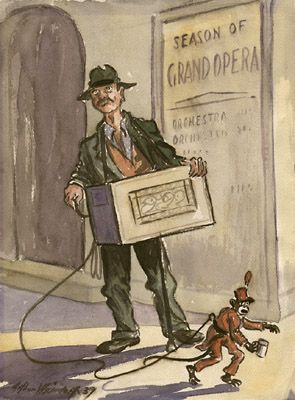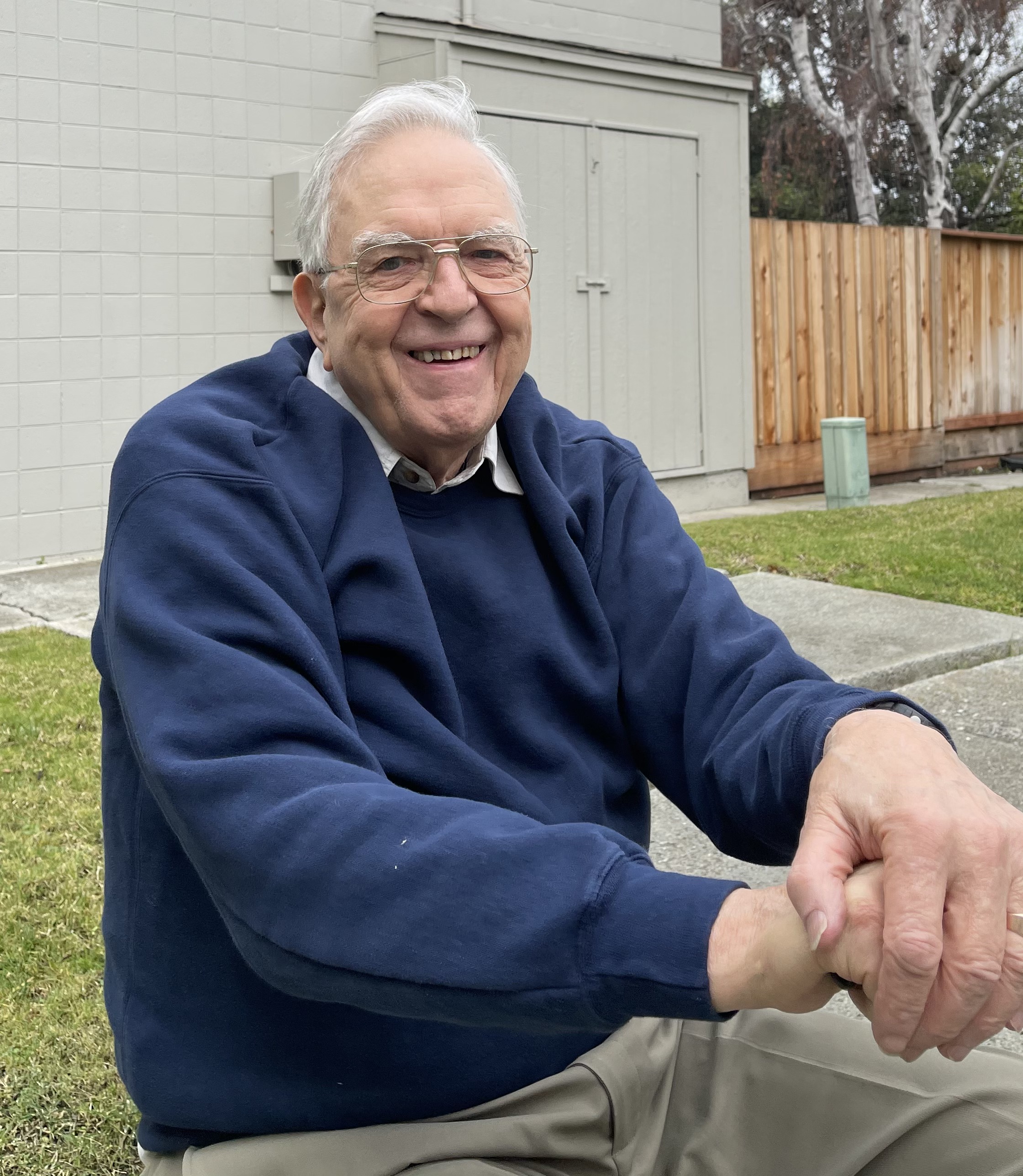

from Psychology Today December 18, 2008
Some of us look grown-up but aren't.
Holiday cards have been arriving from old friends: college roommates, childhood pals. Most of us haven't seen each other in years, even decades. Inside a card that arrived yesterday, a lush flocked confection featuring the Three Kings, the sender wrote a note suggesting that we meet for coffee the next time she's in town. Why did this make me freeze? No bad blood seethes between me and the sender. We were friends. We shared clothes, stayed up late watching The Twilight Zone, and made cookies together -- but that was then and this is now, and were we to meet again, she'd see that she is all grown up and I am not.
Some of us look grown up but aren't. We walk around with suits and briefcases and car keys and annuities. But inside, we are five. Ten. Twelve. Sixteen. We sit in boardrooms, travel the world, even write books. But we are kids, still playing dress-up, playing house. Our bodies matured but our minds did not. Now - playing catch-up, playing spy - we feel left out of the adult world, certain that our would-be peers are whispering behind our backs, or speaking in a code we do not know. See? What a childish fear, right there. They're all talking in code!
We are the ones at whom others have hissed Grow up! so many times that we now tune it out. They call us flighty, scatterbrained, irresponsible, illogical, impatient. Here's another word for it: We're immature. We are stuck in the past not usually by choice but because, like dud popcorn kernels or bonsai trees, we failed to grow. The ones who were supposed to show us how to grow did not. They did not know or were not there. Or traumas held us in their grip. Portals inscribed with mystical initiation-signs glimmered, awaiting us, but no: We wandered back the other way or balked. We're stuck.
Can childishness be fixed? Perhaps. Should it? Well, is it hurting anyone? The childish are not well-suited to parenthood or high-stress jobs. The downsides loom. The fears. Imagine wanting to hide under beds. Imagine wanting to flee down the street in sneakers, to the swing set, to the sand - while juggling house payments and wearing bifocals. It's hard.
Then again, some aspects of childhood are worth retaining. Wonder, joy, dreams -- you know the drill. In the 2002 film Mr. Deeds, a remake of the 1939 classic, a simple country bumpkin (played by Adam Sandler, who has built a successful career on portraying childish adults who become heroes without selling out and without quite growing up) inherits a fortune. Addressing a crowd of New Yorkers faced with a brutal business decision, Longfellow Deeds argues that adults have lost touch with their childhood dreams. A man in the crowd confesses that, at age eleven, he dreamed of becoming a veterinarian but that he now owns a chain of slaughterhouses. "We've all compromised," Deeds intones. Another man in the crowd, who at eleven dreamed of becoming a magician, now operates a porn site.
"Our eleven-year-old selves," Deeds says, "would wanna kick us in the ass all over the place."
I'm still not ready to meet that friend for coffee.
Arrested Emotional Development: A Christian's Experience

If someone had asked me a few years ago about “Arrested Development,” I wouldn’t have been able to tell you anything about it, let alone if it affected me. Nevertheless, when I became aware of it, I was certain that I didn’t suffer from Arrested Development, but I was incorrect and living in denial.
What is arrested development? This is what modern medicine says about the matter:
“Even though physical maturity is inevitable, emotional maturity is not. I observe that the vast majority of people are stuck in their emotional growth process somewhere in their adolescent years.
Addictions, greed, immaturity, fear, blame, shame, resentments, anger, confusion and suffering can all be signs of arrested emotional development. When we get ‘stuck’ in our emotional development, we cease to learn how to take responsibility for our actions and our lives. We get stuck at the point of some trauma that happens in our life that we don’t know how to let go of or to process.
Arrested Emotional Development is being stuck in (or anchored to) an emotional level of development from childhood experience also called “resource states”. Out of these ‘negative’ beliefs comes an underlying & unconscious commitment. I.E. I’m not good enough, I was a mistake, I’m dumb, etc..."
THE HOLY SPIRIT
The purpose of this article is to share my understanding of Arrested Development in light of the Bible, how it affects people and how I became free of this emotional bondage. Arrested Development is caused by demons and it has been quite the experience to achieve the healing and growth in my life.
While psychologists are correct in their diagnosis regarding emotional maturity and growth, I do not agree when they state that most people are stuck in their teens. Based upon my own experience and what I have learned from counseling people coming for deliverance, stunted emotional maturity can occur as a young child. My pastor, John S. Torell, has been ministering to people for 45 years and this is also his consensus. The traumas that trigger arrested development can occur in the womb and infancy, meaning you will grow up thinking that your lack of emotional maturity is normal while it continually frustrates family, friends and co-workers around you.
REFLECTIONS ON THE PAST
I married two men for wildly different reasons. I was forced into the first marriage because of a child out of wedlock but it only lasted a few weeks. The second marriage came about as a result of fear and rejection and turned into a 17 year emotional black hole that left me sick and dejected. I was reflecting on my life and told my third and final husband, Kristian, about how I used to feel.
I couldn't see it while it was happening, but I felt like a child when I started my adult life. I was a young mother filled with insecurity and fear. Under the influence of fear, I made rash decisions because that is what children do. I threw temper tantrums when I was overwhelmed and alone. Sometimes I would take the car out alone and drive much faster than the posted speed limit or curl up in the fetal position and cry or just give someone the silent treatment for days on end.
There are a few times I remember being so upset and despondent that I lost it at home. On one of these occasions, I was crying so much that I crawled on my hands and knees up the stairs of my home. I was desperately exhausted and felt hopeless. It didn’t occur to me to think about God as my source of strength even though I had been saved as a child. I was operating completely in the flesh, trying to be tough and do everything by myself.
My second husband refused to show me affection and constantly rejected me during the 17 years we spent together. I had many illnesses during this time such as gout, diverticulitis attacks, and horrendous stomach pains that the doctors could not diagnose even though they performed a myriad of tests. As I stated, this period of my life was an emotional black hole that left me feeling horribly lonely and full of emotional pain.
DIVORCE AND REMARRIAGE
Kristian and I were working together at the same firm two years prior to my divorce. We became friends after a year and it only took me 3 months after I separated from my second husband to get involved with him. My previous marriage was dead for many years, I was starved for love. Kristian was the complete antithesis of my second husband and met my most basic need to be loved and cherished. I was able to get some level of healing from the affection and acceptance he provided; however, it could only take me so far because God was not the focus of my life.
I started to feel like an adult and was able to save money and not be in debt. This was a huge problem in my previous marriage and for the first time I began to feel a semblance of security as we started a new life together. We bought a boat, went camping and spent time with my family. Two years later I remember driving off with our boat attached to the truck and saying to Kristian, “I officially feel like an adult now.” When I uttered those words, I knew it wasn't right to have a material possession make me feel like an adult but I was in a state of Arrested Development that I couldn't discern or understand.
I did okay with my intelligence and street smarts. Humans are very resilient and possess the ability to survive the worst abuses and neglect, but that doesn't mean we come out unscathed. Survival is just that, survival. Surviving is not thriving and living to the potential that God has for us. I have been through some pretty traumatic events as a young child and teenager and they left an unseen mark on me.
There isn’t a single person coming to this ministry for healing and deliverance which has a perfect life; all the stories are similar to mine and some are much worse. What Satan does with emotional traumas is nasty; he freezes our emotional state at the first traumatic event. This is where we get an evil spirit called “Arrested Development” because of its function.
We continue to physically grow and learn but our emotional state is stunted and this hinders our spiritual growth with God. Does that sound strange? Just take a moment and think about the adults in your family or friends that just can't get it together. Examine their childish behavior and poor decisions. You can almost tell the age at which they were first traumatized. Then examine yourself and see if this too applies to you.
THERE IS NO PARADISE WITHOUT JESUS
Kristian and I started a business two months after we were married and things were much better than I’d previously experienced. Our new venture took off and we were doing great financially but the pressure of this new business and our lack of faith/devotion to God took its toll on us.
I loved Kristian deeply but he started having regular anxiety attacks and would lash out at me in frustration. I was still wounded and the slightest criticism from Kristian would put me in tears because of the emotional baggage from the previous marriage and the associative fear of rejection.
I began to entertain thoughts that maybe I had made a huge mistake in marrying Kristian because the pressure of his anxiety was very heavy on me. Almost every weekend ended with me crying and Kristian apologizing and trying his best to control himself around me but this is what happens when two emotional infants in their mid-30's try to live a life without God.
RECONNECTING WITH GOD
The good news is that we found our way back to our Heavenly Father! We found a ministry that knows the value in James 5:16, “Confess your faults one to another, and pray one for another, that ye may be healed…” This ministry had experience with Arrested Development and God used them to cast that demon out of me and my husband. We flew from Alaska to California where we went through a week of prayer for deliverance from demons as we methodically retraced the steps of our lives and discovered a whole mess of stuffed emotions and things we had never told anybody. We confessed it all to the Lord, received forgiveness and God gave us miraculous healings in our souls and bodies. One of the healings that took place is that I don’t suffer from unknown stomach pains, gout or indigestion anymore.
There are still times when I experience those familiar stomach pains but now I know that means my soul isn't happy. God reveals the source of the problem when I pray about it and the pain stops immediately when I discover its root and deal with it. This shows the sensitivity of our souls. It is important to listen to the Holy Spirit because our souls won’t be happy when we don’t heed the guidance of the Lord.
I can laugh about this now, but as I started to read my copy of Christian Dynamics Course 1, I remember sitting back in my chair with a little bit of pride and a side helping of denial and informing Pastor John, “I don't have Arrested Development; I just read about it and it doesn't fit me.” He was silent and after a long awkward pause he lovingly asked, “Do you think that all the decisions you made in your past were mature ones?” I couldn’t argue with that logic!
Christian Dynamics Course 1 is an excellent resource. It is biblically sound and will help you find your freedom in God the Father, Jesus the Son, and the Holy Spirit.
WHERE WE ARE NOW IN 2015
It's been a long road to get where I am today! I now look at Kristian and he's become a man. We no longer get upset about things which cause turmoil in our lives. I did not know I was a child emotionally until I was set free by the Lord and today I can look back and see the difference!
We study God's word and have been baptized in the Holy Spirit. We sold almost everything to become missionaries to help others go through this process to find freedom and to grow in Christ! I love my life with God as my employer! I love that I can now understand with my redeemed soul and born again spirit the “covering” my husband is to me as described in 1 Corinthians 11:3, “But I would have you know, that the head of every man is Christ: and the head of the woman is the man: and the head of Christ is God.”
My first two husbands failed in their God-given duty but Kristian’s prayers are very powerful for me. The Bible tells me to go to him for prayer. It's not easy to put into words what it is like but it is so peaceful. We shared a communion together a few nights ago and it was the most powerful communion I have ever experienced. To listen to God's anointing on my husband as he prayed brought me to tears.
The steps we are going through to reach our actual physical maturity have been interesting and we aren't finished yet! I want to share my experience so you too will be prepared. After being set free, it is necessary for a person to go through the emotional phases that were skipped over. My husband and I thankfully went through this together and had strong support from our pastor to help us when we had questions.
The first time we had a temper tantrum or an outburst, we were concerned that we had allowed a demon back in. After being set free from the years of constant noise in our heads, we certainly did not want to regress. It was just a fleeting moment of us going through that phase in our life. So we started to recognize the different emotions and go with the flow. I am working with a few women now who are in the process of emotional growth after being set free of the demon of arrested development and they are a blessing to me. I don’t wish to relive my life but I praise God for getting me through all of this so I can in turn help others.
I have a friend who is doing the 16 week Christian Dynamics Course 3 follow-up after deliverance. She expressed feeling annoyed when someone tries to show her love. She doesn't have a problem with this normally, so we know she is just having a moment of being emotionally arrested as a 12 year old. She was experiencing a healing and this is hard to explain until you have gone through it. I experienced this also and God is good to help us go through some of these blocked emotions we surpassed as children and very quickly. I talked to her a week later and she is so happy! The joy she had with the Lord has returned to her and she is able to pray freely in her intercessory ministry, something she has not been able to do in quite a while.
My journey isn’t over yet and it is my prayer that I will be available for anyone seeking salvation, deliverance and healing. We are all in this together. Deliverance only comes from seeking the Lord and using the Scriptures as our guide.
Yours in Christ,
Laura Getting
![]()
 Suppose you got stuck in growing up. Most of us had less than perfect parents, or a single parents, or no parents at all...
Suppose you got stuck in growing up. Most of us had less than perfect parents, or a single parents, or no parents at all...
Welcome to the human race!
Then Jesus entered and passed through Jericho."Now behold, there was a man named Zacchaeus who was a chief tax collector, and he was rich. And he sought to see who Jesus was, but could not because of the crowd, for he was of short stature. So he ran ahead and climbed up into a sycamore tree to see Him, for He was going to pass that way. And when Jesus came to the place, He looked up and saw him, and said to him, “Zacchaeus, make haste and come down, for today I must stay at your house.” So he made haste and came down, and received Him joyfully. But when they saw it, they all complained, saying, “He has gone to be a guest with a man who is a sinner.” Then Zacchaeus stood and said to the Lord, “Look, Lord, I give half of my goods to the poor; and if I have taken anything from anyone by false accusation, I restore fourfold.”
And Jesus said to him, “Today salvation has come to this house, because he also is a son of Abraham; for the Son of Man has come to seek and to save that which was lost.” (Luke 19:1-10)



| And so, from the day we heard, we have not ceased to pray for you, asking that you may be filled with the knowledge of his will in all spiritual wisdom and understanding, so as to walk in a manner worthy of the Lord, fully pleasing to him: bearing fruit in every good work and increasing in the knowledge of God; being strengthened with all power, according to his glorious might, for all endurance and patience with joy; giving thanks to the Father, who has qualified you to share in the inheritance of the saints in light. He has delivered us from the domain of darkness and transferred us to the kingdom of his beloved Son, in whom we have redemption, the forgiveness of sins. He is the image of the invisible God, the firstborn of all creation. For by him all things were created, in heaven and on earth, visible and invisible, whether thrones or dominions or rulers or authorities—all things were created through him and for him. And he is before all things, and in him all things hold together. And he is the head of the body, the church. He is the beginning, the firstborn from the dead, that in everything he might be preeminent. For in him all the fullness of God was pleased to dwell, and through him to reconcile to himself all things, whether on earth or in heaven, making peace by the blood of his cross. And you, who once were alienated and hostile in mind, doing evil deeds, he has now reconciled in his body of flesh by his death, in order to present you holy and blameless and above reproach before him,if indeed you continue in the faith, stable and steadfast, not shifting from the hope of the gospel that you heard, which has been proclaimed in all creation under heaven, and of which I, Paul, became a minister. " (Colossians 1:9-22) |
Royal Priests
Jesus, our Great High Priest
Who Holds the Universe Together?
Let's get On with It, by Ray C. Stedman
The Maturing Process by Ray C. Stedman
Abraham, by Ray Stedman
Sigmund Freud's Psychoanalytic Theories
Carl Jung's Analytic Psychology

![]()
by Ray Stedman
The passage before us is so important and so provocative that I will waste no time in introduction. I shall follow the suggestion of our title and "get on with it." The section from 5:11 to 6:12 gathers around four figures, or pictures, though one is implied rather than stated. We shall call these four figures the milk drinkers, the meat eaters, the stillborn, and the fruit growers.
This first section describes milk drinkers:
About this [i.e., Christ being a high priest after the order of Melchizedek] we have much to say which is hard to explain, since you have become dull of hearing. For though by this time you ought to be teachers, you need someone to teach you again the first principles of God's word. You need milk, not solid food; for every one who lives on milk is unskilled in the word of righteousness, for he is a child. But solid food is for the mature, for those who have their faculties trained by practice to distinguish good from evil. (Hebrews 5:11-14 RSV)
Obviously, here is a case of arrested development. Here are people who have been professing Christians for many years. By this time they ought to have been teachers, but they need yet to have someone teach them the very ABC's of the gospel, the word of Christ. It is a case of retarded maturity.
We have at our home a three-year-old daughter. It is the undivided opinion of our family that she is the smartest, brightest, and cutest little girl that ever lived. And she says very clever things. We all take great delight in her. But if, at this stage of her life, something should happen and her body kept growing but her mind stopped, and she went on saying the same clever things she is saying now all the while her body matured and grew into full womanhood, we would no longer find delight in what she says. Our joy would be turned to sorrow; we would feel great grief at the sight of our dear one suffering from arrested development.
That is what this author feels as he writes to these Hebrews. There is a cloud of threat hanging over these people due to their immaturity. The writer makes three very important and insightful observations about this problem.
First, there is the clear suggestion that age alone does not produce maturity. It is amazing how many of us think it does. We love this thought of inevitable growth. How often we say, "Just give us time. We have only been Christians for fifteen or twenty years. Perhaps we will yet grow out of these hot tempers, catty tongues and jealous spirits. Just give us time." But time never brings maturity.
I read recently of a principal in a high school who had an administrative post to fill. He promoted one of his teachers with ten years of teaching experience to the job. When the announcement was made, another teacher in this school came to him terribly upset. She said, "Why did you put that teacher in this position? He has only had ten years of experience, and I've had twenty-five years, yet you passed me over in favor of him." And the principal said, "I'm sorry, you're wrong. You haven't had twenty-five years of experience. You have had one year's experience twenty-five times."
That is exactly the situation with these Hebrew Christians. They had been going through the same experience again and again all the years of their Christian life, but had never grown. Instead of marching forward, they were simply marking time.
It is the problem with so many of us, is it not? Someone told me the other day that he had analyzed his difficulty and had decided he was suffering from prolonged adolescence, merging into premature senility! It is this process that produces the frequent phenomenon of Christians who come to sit, and soak, and sour. But the writer here makes very clear that age will never cure immaturity.
The second observation he makes is that immaturity is self-identifying. It has certain clear marks which provide a simple test that anyone can take to determine whether he belongs in this classification or not:
The first mark is an inability to instruct others. Though these have been Christians for years they still cannot help anyone else. They have nothing to say to help another who may be struggling with problems. They cannot even point someone to Christ. There is no ability to help or instruct another. In fact, they themselves can only understand the very simplest doctrinal treatment. They need milk, the writer says, instead of strong meat. They do not understand the "word of righteousness," i.e., the divine program which results in right conduct, because they are themselves children and want only milk. That is the first mark of immaturity, an inability to instruct others.
The second mark is an inability to discern good from evil. It is such people who constitute what we may call consecrated blunderers, evangelical crabs, the ones who mean right and think they are doing right but are continually doing the wrong thing, creating problem situations, and difficulties with others.
They include the doctrinally undiscerning, i.e., those who are blown about with every wind of doctrine, who give themselves to the theological fads which come in repetitive cycles. Anyone who has observed the Christian scene for any period of time recognizes there are certain fads which repeat themselves in cycles of interest, such as faith-healing, tongues, and legalistic practices. These are the doctrinally undiscerning; they go along with every movement that comes.
It includes also the emotionally gullible, i.e., those who are moved by some emotional appeal. This is especially true, perhaps, in the realm of missionary appeal. There are those who are affected easily by stories of starving babies, disfigured lepers, and naked savages; who respond to purely emotional stimulation and give their funds only to those organizations or mission boards that make their appeal along these lines. They are uncritical in their evaluation of a work. If it has this emotional content, that is all they look for.
Included in this class are those who are frightened by what we might call "religious bogey men" -- certain names or personalities that are used as scarecrows because the very use of their name frightens people off from having any part in certain activity. These are the emotionally gullible.
Then, this group includes those who are personality followers, those who make much of men, who fasten themselves to one particular, outstanding, sparkling personality and read only his books and play his tapes exclusively. I am not speaking against reading books and playing tapes, but I am talking about fastening on to one individual in this respect to the exclusion of others. Those who do this are children, immature, unable to distinguish the activity of the flesh, with its exhibitionism and egotism, from the manifestation of the Spirit. They applaud what God condemns; they resent what God approves.
The third observation the author makes is that arrested development is a very costly thing. "About this," he says, "we have much to say which is hard to explain, since you have become dull of hearing." There is so much of the riches of the Melchizedek priesthood of Christ which I want to tell you," he says, "which would make your starved humanity burst into bloom like buds in the spring if you could but grasp it, but you would not get it because you are so dull of hearing." The immature lose so much, and they risk even more. There is a very grave danger threatening these who continue in this condition of prolonged immaturity. He will describe it fully in this next section.
But first we have a brief view of the other side of the picture, the meat eaters, the mature:
Therefore let us leave the elementary doctrines of Christ and go on to maturity, not laying again a foundation of repentance from dead works and of faith toward God, with instruction about ablutions, the laying on of hands, the resurrection of the dead, and eternal judgment. And this we will do if God permits. (Hebrews 6:1-3 RSV)
It is from this section that our title comes, "Let's get on with it." He is urging these people to graduate from milk to meat, from immature diet to solid food, for, he says, it is this that is the mark of maturity. "Solid food is for the mature."
In the Authorized Version the word for mature is perfection: "Let us go on to perfection." I hasten immediately to add, this does not mean sinless perfection. John makes that clear in his first letter, "If we say we have no sin, we deceive ourselves [we do not fool anyone else, especially our wives, but we deceive ourselves], and the truth is not in us," (1 John 1:8 RSV). No, it is not sinless perfection he is talking about. Paul could write to the Philippians and say, "Let those of us who are mature [perfect] be thus minded," (Philippians 3:15a RSV). Yet just three verses before he says, "Not that I have already obtained this or am already perfect;" (Philippians 3:12a RSV). Notice, there is a maturity, a perfection, which he disowns. That is yet ahead. "I have not reached ultimate perfection, I am not claiming to be sinlessly perfect, I have not yet reached the place where there is nothing at all wrong with me -- that lies beyond the resurrection, that is ahead," Philippians 3:12b-14). But there is also a maturity which he claims. It is that which in Hebrews has already been called "the rest of God," a moment by moment exercise of faith, a perfect understanding of God's principle of activity, a coming of age, an entering into spiritual manhood.
This is what the writer means here. It is produced not by age, as we have already seen, nor by food, for milk will not effect it either, but it is produced by practice. "Those who have their faculties trained by practice to distinguish good from evil." It is produced by acting on what you believe, stepping out upon it, putting it into practice. That is what brings about maturity.
To reach this requires leaving behind the principles of the gospel, the ABC's, the elementary truths, the familiar ground by which we came into Christian faith. "Not laying again this foundation." Here is another figure of arrested development. A foundation is laid but nothing is built on it. Instead of building on the foundation, the owner tears it up and lays it again. Then he goes back and lays it yet again. There is nothing but a repetitive laying again and again of the same foundation; it is arrested development.
Major Ian Thomas once said to me, "You know, I have discovered an interesting thing about American Christians. They do not usually come to church to learn anything. Whatever they do not yet know themselves they think is heresy. What they want to hear is the same old stuff so they can say, 'Amen, brother, Amen!'"
That is laying the same foundation over and over again.
The foundation is called "the elementary doctrines of Christ," or, in Chapter 5, "the first principles of God's word." The elements of it are listed for us, and they fall into three very interesting groups:
There are those doctrinal truths concerning conversion; Then teaching concerning church ordinances, and doctrine concerning prophetic matters.
This is milk! This is proper for babies, but is very inadequate for anyone who wishes to go on to maturity, to full growth in the Christian life. He does not mean when he says "leave these" that they are to be forgotten, or denied, or neglected, but they are no longer to be the chief center of attention. That is the point he is making.
Is it not rather startling that these are often the sole topics on which many ministers dwell? They preach them over and over, and call them the simple gospel. Because this simple gospel is preached unendingly in our churches, we have Christians who are weak, childish and immature. I have long been convinced that the greatest cause of the weak state of evangelical Christendom today is preachers who never realize that, in preaching what they call the simple gospel, they are feeding their people upon milk. They never get beyond the foundation.
Let's take a closer look at it. The introductory matters concern "repentance from dead works, and faith toward God." Now those are great themes. They are absolutely essential to the Christian life. But the point the writer makes is, they are only "A" in the alphabet of faith. The teaching about ordinances includes "baptism, and the laying on of hands." These are but figures of reality, they are not the reality itself. They are very blessed figures and can be very meaningful, but to get concerned over these shadows, these figures, these pictures; to fight over the mode of baptism or the procedure of ordination, is infantile. Dear old Dr. A. T. Pierson used to go about and speak at many churches. When he was in a church that was arguing over the mode of baptism or some such thing, he would say to them, "Quit your baby-talk!" He was quite right. It is an overemphasis on these things which leads to the Mickey Mouse regulations that are imposed so frequently in many churches.
The last two items, "resurrection and eternal judgment," obviously have to do with the themes of prophecy, eschatology. This would include the time of the rapture, the question of who the man of sin is, where the church will be during the tribulation, etc. All these are important truths, the writer does not deny that, but they are so inclined to puff people up with knowledge instead of to edify in love. "It is time," he says, "to leave these things. You know them, you have been talking about them for too long, now go on, go on, there is much more ahead. This," he says, "we will do if God permits."
With those three little words he introduces the knottiest problem-passage in Hebrews if not the whole Bible; a passage which has been a battleground of varying convictions for ages. He changes his figure now, and, beginning with Verse 4, he brings before us a picture of what I shall call "the stillborn."
For it is impossible to restore again to repentance those who have once been enlightened, who have tasted the heavenly gift, and have become partakers of the Holy Spirit, and have tasted the goodness of the word of God and the powers of the age to come, if they then commit apostasy, since they crucify the Son of God on their own account and hold him up to contempt. For land which has drunk the rain that often falls upon it, and brings forth vegetation useful to those for whose sake it was cultivated, receives a blessing from God. But if it bears thorns and thistles, it is worthless and near to being cursed; its end is to be burned. (Hebrews 6:4-8 RSV)
What a sobering passage!
There is, first, the elaboration of an awful possibility. It is impossible to restore again to repentance these who experience certain Spirit-given blessings, if they shall fall away. The problem of the passage is: How can anyone experience all of this and not be Christian? And, if he is Christian, how can he fall away, without any hope of restoration? It is over these issues that the battle has waged hot throughout the Christian ages.
It is important to see that all of this passage hangs upon the three words, if God permits: "This we will do, if God permits." Here is the danger of prolonged immaturity, of remaining in one place all your Christian life. It suggests that you may be one of those whom God will not allow to go further; we have already seen in Chapter 3 that God has said of certain ones, "I swear in my wrath, they shall never enter my rest."
Can we take these expressions here as describing anything other than Spirit-produced, authentic Christian life? Look at them again:
"Those who have once been enlightened." That means, to have their eyes opened to their own desperate personal need, to realize they are in a lost world and need a Savior. That is being enlightened.
"And have tasted the heavenly gift." What is the heavenly gift? Obviously, it is the gift God gave from heaven. "God so loved the world that he gave his only begotten Son. " These are those who have known a personal encounter with Christ, they have "tasted of the heavenly gift."
"Become partakers of the Holy Spirit." That is more than to be influenced by the Holy Spirit, it is to become companions of him, fellow travelers.
"They have tasted the goodness of the word of God." That means to enter into the joy of the promises of God.
"And the powers of the age to come," i.e., they have already experienced the miracle of release and deliverance in their life.
Yet the sentence stands, "when they commit apostasy" (not if, there is no if in the original Greek) it is impossible to restore them. Their case is hopeless!
The immediate question here is not, "Why can they not come back? We will look at that in a moment, but first we must ask, How can they fall away after such a God-honored start as this?
I should like to propose an explanation of this which has long haunted me. I would like to raise a question for you to wrestle with which more and more suggests, at least to me, the correct explanation of this phenomenon. We have already noted that Scripture frequently uses the analogy of human birth and growth to explain spiritual birth and growth. We have that even here. The use of milk by children is an analogy drawn from the physical life. Here is the question I would like to ask: Is it not possible that we frequently confuse conception with birth?
If the spiritual life follows the same pattern as the physical life, we all know that physical life does not begin with birth. It begins with conception. Have we not, perhaps, mistaken conception for birth, and, therefore, have been very confused when certain ones, who seemingly started well, have ended up stillborn? Is there in the spiritual life, as in the natural life, a gestation period before birth when true Spirit-imparted life can fail and result in a stillbirth?
Is there not a time when new Christians are more like embryos, forming little by little in the womb, fed by the faith and vitality of others? Perhaps this is what the Apostle Paul means when he writes to the Galatians, "My little children, I stand in doubt of you. I am travailing in birth again until Christ be formed in you," (Galatians 4:19).
If this be the case, then the critical moment is not when the Word first meets with faith, that is conception; that is when the possibility of new life arises. But the critical moment is when the individual is asked to obey the Lord at cost to himself, contrary to his own will and desire. When, in other words, the Lordship of Christ makes demand upon him and it comes into conflict with his own desire and purposes, his own plans and program. To put it in terms of what is used of the Lord Jesus in Chapter 5, we are called upon to learn obedience at the price of suffering. That is the true moment of birth. "If any man will come after me," said Jesus, "let him deny himself, and take up his cross and follow me," (Matthew 16:24). In grace, the Lord may make this appeal over the course of a number of years. But if it is ultimately refused, this is a stillbirth. The months, and even years, that may be spent in the enjoyment of conversion joy was simply Christian life in embryo. The new birth occurs, if at all, when we first cease from our own works, and rest in Jesus Christ. That is when the life of faith begins.
If this step is refused and the decision is made to reject the claims of Christ to Lordship and control, there follows, as Hebrews points out, a hardening, blinding process which, if allowed to continue, may lead such a one to drop out of church, and in effect, to renounce his Christian faith. Though only God knows the true condition of the heart, if that occurs, the case, he says, is hopeless.
Is this not what the Lord Jesus describes in that parable of the sower in Matthew 13? "Some seed," he says, "fell on rocky ground" (Matthew 13:20) (not gravelly ground, but ground where there was an underlying layer of rock). These are those who receive the word with joy and endure for awhile, but when persecution or tribulation arises, immediately they fall away.
This brings us to the explanation for this hopelessness, this impossibility of return. "It is impossible to restore them if they then commit apostasy, since they crucify the Son of God on their own account and hold him up to contempt." Why is it that God will not permit them to go on in understanding more truth? It is simply because, as far as they are concerned, they are re-crucifying Christ. They are repudiating the principle of the cross. They become, as Paul terms it in Philippians, "enemies of the cross of Christ," (Philippians 3:18). From that point on their lives deteriorate and they shame the profession they once made.
Years ago, at the close of World War II, I frequently attended Saturday night meetings in the Church of the Open Door in Los Angeles, sponsored by Youth For Christ. A brilliant young man was the leader of the meetings and a frequent speaker at them. His name was Chuck Templeton. He had a gift for articulation and I heard him give several wonderful messages, simple, clear expositions of the meaning of the cross of Christ, and the offer of life in Christ Jesus. Saturday after Saturday I saw young people come down the aisles to receive Christ in those meetings. But some time after that Chuck Templeton entered a seminary, where he began to drift from his faith. He served for awhile as a national evangelist for his denomination. Finally, he quit the ministry entirely, and later openly and publicly renounced all faith in Jesus Christ, and went back into secular work. I do not know where he is now, but he no longer makes any Christian profession.
Is he a case like this? Only God knows the answer, but he could be. John tells us there are certain ones "who went out from us, but they were not of us; for if they had been of us, they would have continued with us; but they went out, that it might be plain that they all are not of us," (1 John 2:19). There is a conversion of the head that never reaches the heart.
This is Palm Sunday. This is the day we celebrate the Lord's triumphal entry into Jerusalem. I doubt if he would ever have called it a triumphal entry. He probably would have referred to it as a Day of Sorrows. That was the day when he left the donkey's back to go into the temple and, for the second time in his ministry, clean out the money-changers and the filth that had accumulated in his Father's house. It was then that he stopped the offerings of Israel and would not permit any man to offer sacrifice in the temple. Then he went up on the Mount of Olives and, looking out over the city, his heart broke in yearning over that wretched city, and he cried out those unforgettable words, "O Jerusalem, Jerusalem, killing the prophets and stoning those who are sent to you! How often would I have gathered your children together as a hen gathers her brood under her wings, but you would not!" (Luke 13:34 RSV). The tears coursing down his face, he wept for the city. One week later he was nailed to a cross outside that very city's gates. Where was the multitude that greeted him when he came on the triumphal entry? Oh, they were there, but they were the ones who were now crying out, "Crucify him, crucify him! He said he was the Son of God, let him save himself!" (Luke 23:35)
We have another picture of this apostasy in the case of Judas who for three years accompanied the Lord in his ministry, was sent out with the Twelve, and given power to heal, to cast out demons, to preach the gospel. But at the end, despite the manifestations of Spirit-given power, there was no faith and he turned and went out into the dark night of betrayal.
The last word on this is the illustration of its reality, the account of the two plots of land which have drunk in the rain. It is a very simple illustration, and it parallels the parable of the sower that our Lord told. There were two plots of ground, side by side, both containing good seed. The rain falls on each. One brings forth fruit but on the other the good seed sprouts but because it has no root, some of it dies and the thorns and thistles take over and choke out the rest. The rain pictures the Spirit-given blessings of Verses 4 and 5. What good does more rain do on ground like that? It can only mean more thorns and thistles. This is why God will not permit someone to go on in truth until he ceases his own works and depends on his. It is the principle of faith that alone will receive anything from God. The whole of Scripture testifies to it. For those who refuse to act on that, the end is to be burned.
Now the final figure and we are through, the fruit growers:
Though we speak thus, yet in your case, beloved, we feel sure of better things that belong to salvation. For God is not so unjust as to overlook your work and the love which you showed for his sake in serving the saints, as you still do. And we desire each one of you to show the same earnestness in realizing the full assurance of hope until the end, so that you may not be sluggish, but imitators of those who through faith and patience inherit the promises. (Hebrews 6:9-12 RSV)
There were certain evidences that convinced the writer of this letter that the case was not one of embryo Christians being threatened with stillbirth. There had been a true birth, he thinks, for he has seen unmistakable evidence of love and concern for others, expressed in deeds of compassion. Not simply words but deeds, ministry, help to others. This is the test the Lord has said he will look for. "Inasmuch as you did it unto the least of these my brethren [unconsciously, unknowingly, out of a heart filled with concern for me] you have done it unto me," ( Matthew 25:40).
But as the writer thinks of these dear Hebrew Christians he says, "Your life is so weak and struggling. I am so anxious that you manifest an earnest, whole-souled, fervent hunger to learn and to act and to stay with it!" That is the proven pattern of victory. That is what those in the past have done, those who "by faith and patience inherit the promises." The result will be the full assurance of hope. That is his theme for the next section.
Do you live in uncertainty about your Christian faith? Are you constantly aware of a vague sense of guilt and questioning? Do you have times of real, troubling doubt? Are you still talking baby talk and drinking the milk of elementary things?
The word of the Holy Spirit from this great passage is, "Wake up! Get serious! Give full attention to this. Nothing will ever be more important. Begin to practice what you know, put it to work. And, as you do, you will discover that full assurance of hope that makes others stop and look. Our age, our poor, restless, troubled, bedeviled age, is hungering for the manifestation, the visible evidence, of the sons of God.
Prayer
As before, Lord, these words have searched us, have found us out, have made us to see ourselves. We thank you for that. We do not want to live behind unreal facades, we do not want to be self-deceived. We thank you for telling us the truth even though it may hurt, for we know that it is always to the end that we may be healed. Grant that this may be true in the individual ministry of the Spirit to each life. In Christ's name, Amen.
Let's Get On With It, by Ray Stedman. April 11, 1965

![]()
The Healing of AEDCanticles
We have a little sister, and she has no breasts. What shall we do for our sister, on the day when she is spoken for? The decision reached by both Solomon and Shulamite: If she is a wall, we will build her a battlement of silver; I was a wall, and my breasts were like towers; then I was in his eyes as one who brings peace.
 |

I saw coming towards us a Ghost who carried something on his shoulder. Like all the Ghosts, he was unsubstantial, but they differed from one another as smokes differ. Some had been whitish; this one was dark and oily. What sat on his shoulder was a little red lizard, and it was twitching its tail like a whip and whispering things in his ear. As we caught sight of him he turned his head to the reptile with a snarl of impatience. "Shut up, I tell you!" he said. It wagged its tail and continued to whisper to him. He ceased snarling, and presently began to smile. Then he turned and started to limp westward, away from the mountains.
"Off so soon?" said a voice.
The speaker was more or less human in shape but larger than a man, and so bright that I could hardly look at him. His presence smote on my eyes and on my body too (for there was heat coming from him as well as light) like the morning sun at the beginning of a tyrannous summer day.
"Yes. I'm off," said the Ghost. "Thanks for all your hospitality. But it's no good, you see. I told this little chap," (here he indicated the lizard), "that he'd have to be quiet if he came -which he insisted on doing. Of course his stuff won't do here: I realise that. But he won't stop. I shall just have to go home."
"Would you like me to make him quiet?" said the flaming Spirit-an angel, as I now understood. "Of course I would," said the Ghost.
"Then I will kill him," said the Angel, taking a step forward.
"Oh-ah-look out! You're burning me. Keep away," said the Ghost, retreating.
"Don't you want him killed?"
"You didn't say anything about killing him at first. I hardly meant to bother you with anything so drastic as that."
"It's the only way," said the Angel, whose burning hands were now very close to the lizard. "Shall I kill it?"
"Well, that's a further question. I'm quite open to consider it, but it's a new point, isn't it? I mean, for the moment I was only thinking about silencing it because up here-well, it's so damned embarrassing."

"May I kill it?"
"Well, there's time to discuss that later."
"There is no time. May I kill it?"
"Please, I never meant to be such a nuisance. Please-really-don't bother.
Look! It's gone to sleep of its own accord. I'm sure it'll be all right now.
Thanks ever so much.""May I kill it?"
"Honestly, I don't think there's the slightest necessity for that. I'm sure I shall be able to keep it in order now. I think the gradual process would be far better than killing it."
"The gradual process is of no use at all."
"Don't you think so? Well, I'll think over what you've said very carefully. I honestly will. In fact I'd let you kill it now, but as a matter of fact I'm not feeling frightfully well to-day. It would be silly to do it now. I'd need to be in good health for the operation. Some other day, perhaps."
"There is no other day. All days are present now."
"Get back! You're burning me. How can I tell you to kill it? You'd kill me if you did."
"It is not so."
"Why, you're hurting me now."
"I never said it wouldn't hurt you. I said it wouldn't kill you."
"Oh, I know. You think I'm a coward. But it isn't that. Really it isn't. I say! Let me run back by tonight's bus and get an opinion from my own doctor. I'll come again the first moment I can."
"This moment contains all moments."
"Why are you torturing me? You are jeering at me. How can I let you tear me to pieces? If you wanted to help me, why didn't you kill the damned thing without asking me-before I knew? It would be all over by now if you had."
"I cannot kill it against your will. It is impossible. Have I your permission?"
"Honestly, I don't think there's the slightest necessity for that. I'm sure I shall be able to keep it in order now. I think the gradual process would be far better than killing it."
The Angel's hands were almost closed on the Lizard, but not quite. Then the Lizard began chattering to the Ghost so loud that even I could hear what it was saying.
"Be careful," it said. "He can do what he says. He can kill me. One fatal word from you and he will! Then you'll be without me for ever and ever. It's not natural. How could you live? You'd be only a sort of ghost, not a real man as you are now. He doesn't understand. He's only a cold, bloodless abstract thing. It may be natural for him, but it isn't for us. Yes, yes. I know there are no real pleasures now, only dreams. But aren't they better than nothing? And I'll be so good. I admit I've sometimes gone too far in the past, but I promise I won't do it again. I'll give you nothing but really nice dreams-all sweet and fresh and almost innocent. You might say, quite innocent____"
"Have I your permission?" said the Angel to the Ghost.
"I know it will kill me."
"It won't. But supposing it did?"
"You're right. It would be better to be dead than to live with this creature."
"Then I may?"
"Damn and blast you! Go on can't you? Get it over. Do what you like," bellowed the Ghost: but ended, whimpering, "God help me. God help me."
Next moment the Ghost gave a scream of agony such as I never heard on Earth. The Burning One closed his crimson grip on the reptile: twisted it, while it bit and writhed, and then flung it, broken backed, on the turf.
"Ow! That's done for me," gasped the Ghost, reeling backwards.
For a moment I could make out nothing distinctly. Then I saw, between me and the nearest bush, unmistakably solid but growing every moment solider, the upper arm and the shoulder of a man. Then, brighter still and stronger, the legs and hands. The neck and golden head materialised while I watched, and if my attention had not wavered I should have seen the actual completing of a man-an immense man, naked, not much smaller than the Angel. What distracted me was the fact that at the same moment something seemed to be happening to the Lizard. At first I thought the operation had failed. So far from dying, the creature was still struggling and even growing bigger as it struggled. And as it grew it changed. Its hinder parts grew rounder. The tail, still flickering, became a tail of hair that flickered between huge and glossy buttocks. Suddenly I started back, rubbing my eyes. What stood before me was the greatest stallion I have ever seen, silvery white but with mane and tail of gold. It was smooth and shining, rippled with swells of flesh and muscle, whinneying and stamping with its hoofs. At each stamp the land shook and the trees dindled.

I came out as quickly as I could from among the bushes to follow them with my eyes; but already they were only like a shooting star far off on the green plain, and soon among the foothills of the mountains. Then, still like a star, I saw them winding up, scaling what seemed impossible steeps, and quicker every moment, till near the dim brow of the landscape, so high that I must strain my neck to see them, they vanished, bright themselves, into the rose-brightness of that everlasting morning.
While I still watched, I noticed that the whole plain and forest were shaking with a sound which in our world would be too large to hear, but there I could take it with joy. I knew it was not the Solid People who were singing. It was the voice of that earth, those woods and those waters. A strange archaic, inorganic noise, that came from all directions at once. The Nature or Arch-nature of that land rejoiced to have been once more ridden, and therefore consummated, in the person of the horse.
It sang, "The Master says to our master, Come up. Share my rest and splendour till all natures that were your enemies become slaves to dance before you and backs for you to ride, and firmness for your feet to rest on.
"From beyond all place and time, out of the very Place, authority will be given you: the strengths that once opposed your will shall be obedient fire in your blood and heavenly thunder in your voice.
"Overcome us that, so overcome, we may be ourselves: we desire the beginning of your reign as we desire dawn and dew, wetness at the birth of light.
"Master, your Master has appointed you for ever: to be our King of Justice and our high Priest." "Do ye understand all this, my Son?" said the Teacher.
"I don't know about all, Sir," said I. "Am I right in thinking the Lizard really turned into the Horse?"
"Aye. But it was killed first. Ye'll not forget that part of the story?"
"I'll try not to, Sir. But does it mean that everything-everything-that is in us can go on to the Mountains?"
"Nothing, not even the best and noblest, can go on as it now is. Nothing, not even what is lowest and most bestial, will not be raised again if it submits to death. It is sown a natural body, it is raised a spiritual body. Flesh and blood cannot come to the Mountains. Not because they are too rank, but because they are too weak. What is a Lizard compared with a stallion? Lust is a poor, weak, whimpering whispering thing compared with that richness and energy of desire which will arise when lust has been killed."
"But am I to tell them at home that this man's sensuality proved less of an obstacle than that poor woman's love for her son? For that was, at any rate, an excess of love."
"Ye'll tell them no such thing," he replied sternly. "Excess of love, did ye say? There was no excess, there was defect. She loved her son too little, not too much. If she had loved him more there'd be no difficulty. I do not know how her affair will end. But it may well be that at this moment she's demanding to have him down with her in Hell. That kind is sometimes perfectly ready to plunge the soul they say they love in endless misery if only they can still in some fashion possess it. No, no. Ye must draw another lesson. Ye must ask, if the risen body even of appetite is as grand a horse as ye saw, what would the risen body of maternal love or friendship be?"

While we spoke the Lady was steadily advancing towards us, but it was not at us she looked.
Following the direction of her eyes, I turned and saw an oddly-shaped phantom approaching. Or rather two phantoms: a great tall Ghost, horribly thin and shaky, who seemed to be leading on a chain another Ghost no bigger than an organ-grinder's monkey.
The taller Ghost wore a soft black hat, and he reminded me of something that my memory could not quite recover. Then, when he had come within a few feet of the Lady he spread out his lean, shaky hand flat on his chest with the fingers wide apart, and exclaimed in a hollow voice, "At last!" All at once I realised what it was that he had put me in mind of. He was like a seedy actor of the old school.
"Darling! At last!" said the Lady.
"Good Heavens!" thought I.
"Surely she can't-----," and then I noticed two things. In the first place, I noticed that the little Ghost was not being led by the big one. It was the dwarfish figure that held the chain in its hand and the theatrical figure that wore the collar round its neck. In the second place, I noticed that the Lady was looking solely at the dwarf Ghost.
 She seemed to think it was the Dwarf who had addressed her, or else she was deliberately ignoring the other. On the poor dwarf she turned her eyes. Love shone not from her face only, but from all her limbs, as if it were some liquid in which she had just been bathing. Then, to my dismay she came nearer. She stooped down and kissed the Dwarf. It made one shudder to see her in such close contact with that cold, damp, shrunken thing. But she did not shudder.
She seemed to think it was the Dwarf who had addressed her, or else she was deliberately ignoring the other. On the poor dwarf she turned her eyes. Love shone not from her face only, but from all her limbs, as if it were some liquid in which she had just been bathing. Then, to my dismay she came nearer. She stooped down and kissed the Dwarf. It made one shudder to see her in such close contact with that cold, damp, shrunken thing. But she did not shudder.
"Frank," she said, "before anything else, forgive me. For all I ever did wrong and for all I did not do right since the first day we met, I ask your pardon."
I looked properly at the Dwarf for the first time now: or perhaps, when he received her kiss he became a little more visible. One could just make out the sort of face he must have had when he was a man: a little, oval, freckled face with a weak chin and a tiny wisp of unsuccessful moustache.
He gave her a glance, not a full look. He was watching the Tragedian out of the corner of his eyes. Then he gave a jerk to the chain: and it was the Tragedian, not he, who answered the Lady.
"There, there," said the Tragedian. "We'll say no more about it. We all make mistakes." With the words there came over his features a ghastly contortion which, I think, was meant for an indulgentlv plavful smile.
"We'll say no more," he continued. "It's not myself I'm thinking about. It is you. That is what has been continually on my mind-all these years. The thought of you-you here alone, breaking your heart about me."
"But now," said the Lady to the Dwarf, "you can set all that aside. Never think like that again. It is all over."
Her beauty brightened so that I could hardly see anything else, and under that sweet compulsion the Dwarf really looked at her for the first time.
For a second I thought he was growing more like a man. He opened his mouth. He himself was going to speak this time. But oh, the disappointment when the words came!
"You missed me?" he croaked in a small, bleating voice.
Yet even then she was not taken aback. Still the love and courtesy flowed from her.
"Dear, you will understand about that very soon," she said. "But to-day-----."
What happened next gave me a shock. The Dwarf and the Tragedian spoke in unison, not to her but to one another. "You'll notice," they warned one another, "she hasn't answered our question."
I realised then that they were one person, or rather that both were the remains of what had once been a person. The Dwarf again rattled the chain.
"Surely she can't-----," and then I noticed two things. In the first place, I noticed that the little Ghost was not being led by the big one. It was the dwarfish figure that held the chain in its hand and the theatrical figure that wore the collar round its neck. In the second place, I noticed that the Lady was looking solely at the dwarf Ghost.
She seemed to think it was the Dwarf who had addressed her, or else she was deliberately ignoring the other. On the poor dwarf she turned her eyes. Love shone not from her face only, but from all her limbs, as if it were some liquid in which she had just been bathing. Then, to my dismay she came nearer. She stooped down and kissed the Dwarf. It made one shudder to see her in such close contact with that cold, damp, shrunken thing. But she did not shudder.
"Frank," she said, "before anything else, forgive me. For all I ever did wrong and for all I did not do right since the first day we met, I ask your pardon."
I looked properly at the Dwarf for the first time now: or perhaps, when he received her kiss he became a little more visible. One could just make out the sort of face he must have had when he was a man: a little, oval, freckled face with a weak chin and a tiny wisp of unsuccessful moustache.
He gave her a glance, not a full look. He was watching the Tragedian out of the corner of his eyes. Then he gave a jerk to the chain: and it was the Tragedian, not he, who answered the Lady.
"There, there," said the Tragedian. "We'll say no more about it. We all make mistakes." With the words there came over his features a ghastly contortion which, I think, was meant for an indulgently playful smile.
"We'll say no more," he continued. "It's not myself I'm thinking about. It is you. That is what has been continually on my mind-all these years. The thought of you-you here alone, breaking your heart about me."
"But now," said the Lady to the Dwarf, "you can set all that aside. Never think like that again. It is all over."
Her beauty brightened so that I could hardly see anything else, and under that sweet compulsion the Dwarf really looked at her for the first time.
For a second I thought he was growing more like a man. He opened his mouth. He himself was going to speak this time. But oh, the disappointment when the words came!
"You missed me?" he croaked in a small, bleating voice.
Yet even then she was not taken aback. Still the love and courtesy flowed from her.
"Dear, you will understand about that very soon," she said. "But to-day-----."
What happened next gave me a shock. The Dwarf and the Tragedian spoke in unison, not to her but to one another. "You'll notice," they warned one another, "she hasn't answered our question."
I realised then that they were one person, or rather that both were the remains of what had once been a person. The Dwarf again rattled the chain.
"You missed me?" said the Tragedian to the Lady, throwing a dreadful theatrical tremor into his voice.
"Dear friend," said the Lady, still attending exclusively to the Dwarf, "you may be happy about that and about everything else. Forget all about it for ever."
And really, for a moment, I thought the Dwarf was going to obey: partly because the outlines of his face became a little clearer, and partly because the invitation to all joy, singing out of her whole being like a bird's song on an April evening, seemed to me such that no creature could resist it. Then he hesitated. And then-once more he and his accomplice spoke in unison.
"Of course it would be rather fine and magnanimous not to press the point," they said to one another. "But can we be sure she'd notice? We've done these sort of things before.
There was the time we let her have the last stamp in the house to write to her mother and said nothing although she had known we wanted to write a letter ourself. We'd thought she'd remember and see how unselfish we'd been. But she never did. And there was the time . . . oh, lots and lots of times!" So the Dwarf gave a shake to the chain and-----.
"I can't forget it," cried the Tragedian. "And I won't forget it, either. I could forgive them all they've done to me. But for your miseries-----."
"Oh, don't you understand?" said the Lady. "There are no miseries here."
"Do you mean to say," answered the Dwarf, as if this new idea had made him quite forget the Tragedian for a moment, "do you mean to say you've been happy?"
"Didn't you want me to be? But no matter. Want it now. Or don't think about it at all."
The Dwarf blinked at her. One could see an unheard-of idea trying to enter his little mind: one could see even that there was for him some sweetness in it. For a second he had almost let the chain go: then, as if it were his life-line, he clutched it once more.
"Look here," said the Tragedian. "We've got to face this." He was using his "manly" bullying tone this time: the one for bringing women to their senses.
"Darling," said the Lady to the Dwarf, "there's nothing to face. You don't want me to have been miserable for misery's sake. You only think I must have been if I loved you. But if you'll only wait you'll see that isn't so."
"Love!" said the Tragedian striking his forehead with his hand: then, a few notes deeper, "Love! Do you know the meaning of the word?"
"How should I not?" said the Lady. "I am in love. In love, do you understand? Yes, now I love truly."
"You mean," said the Tragedian, "you mean - you did not love me truly in the old days?"
"Only in a poor sort of way," she answered. "I have asked you to forgive me. There was a little real love in it. But what we called love down there was mostly the craving to be loved. In the main I loved you for my own sake: because I needed you."
"And now!" said the Tragedian with a hackneyed gesture of despair. "Now, you need me no more?" "But of course not!" said the Lady; and her smile made me wonder how both the phantoms could refrain from crying out with joy.
"What needs could I have," she said, "now that I have all? I am full now, not empty. I am in Love Himself, not lonely. Strong, not weak. You shall be the same. Come and see. We shall have no need for one another now: we can begin to love truly."
But the Tragedian was still striking attitudes.
"She needs me no more-no more. No more/' he said in a choking voice to no one in particular. "Would to God," he continued, but he was now pronouncing it Gud--"Would to God I had seen her lying dead at my feet before I heard those words. Lying dead at my feet. Lying dead at my feet."
I do not know how long the creature intended to go on repeating the phrase, for the Lady put an end to that. "Frank! Frank!" she cried in a voice that made the whole wood ring. "Look at me. Look at me. What are you doing with that great, ugly doll? Let go of the chain. Send it away. It is you I want. Don't you see what nonsense it's talking?"
Merriment danced in her eyes. She was sharing a joke with the Dwarf, right over the head of the Tragedian. Something not at all unlike a smile struggled to appear on the Dwarf's face. For he was looking at her now. Her laughter was past his first defenses. He was struggling hard to keep it out, but already with imperfect success. Against his will, he was even growing a little bigger.
"Oh, you great goose," said she. "What is the good of talking like that here? You know as well as I do that you did see me lying dead years and years ago. Not 'at your feet,' of course, but on a bed in a nursing home. A very good nursing home it was too. Matron would never have dreamed of leaving bodies lying about the floor! It's ridiculous for that doll to try to be impressive about death here. It just won't work."

"You missed me?" said the Tragedian to the Lady, throwing a dreadful theatrical tremor into his voice.
"Dear friend," said the Lady, still attending exclusively to the Dwarf, "you may be happy about that and about everything else. Forget all about it for ever."
And really, for a moment, I thought the Dwarf was going to obey: partly because the outlines of his face became a little clearer, and partly because the invitation to all joy, singing out of her whole being like a bird's song on an April evening, seemed to me such that no creature could resist it. Then he hesitated. And then-once more he and his accomplice spoke in unison.
"Of course it would be rather fine and magnanimous not to press the point," they said to one another. "But can we be sure she'd notice? We've done these sort of things before.
There was the time we let her have the last stamp in the house to write to her mother and said nothing although she had known we wanted to write a letter ourself. We'd thought she'd remember and see how unselfish we'd been. But she never did. And there was the time . . . oh, lots and lots of times!" So the Dwarf gave a shake to the chain and-----.
"I can't forget it," cried the Tragedian. "And I won't forget it, either. I could forgive them all they've done to me. But for your miseries-----."
"Oh, don't you understand?" said the Lady. "There are no miseries here."
"Do you mean to say," answered the Dwarf, as if this new idea had made him quite forget the Tragedian for a moment, "do you mean to say you've been happy?"
"Didn't you want me to be? But no matter. Want it now. Or don't think about it at all."
The Dwarf blinked at her. One could see an unheard-of idea trying to enter his little mind: one could see even that there was for him some sweetness in it. For a second he had almost let the chain go: then, as if it were his life-line, he clutched it once more.
"Look here," said the Tragedian. "We've got to face this." He was using his "manly" bullying tone this time: the one for bringing women to their senses.
"Darling," said the Lady to the Dwarf, "there's nothing to face. You don't want me to have been miserable for misery's sake. You only think I must have been if I loved you. But if you'll only wait you'll see that isn't so."
"Love!" said the Tragedian striking his forehead with his hand: then, a few notes deeper, "Love! Do you know the meaning of the word?"
"How should I not?" said the Lady. "I am in love. In love, do you understand? Yes, now I love truly."
"You mean," said the Tragedian, "you mean - you did not love me truly in the old days?"
"Only in a poor sort of way," she answered. "I have asked you to forgive me. There was a little real love in it. But what we called love down there was mostly the craving to be loved. In the main I loved you for my own sake: because I needed you."
"And now!" said the Tragedian with a hackneyed gesture of despair. "Now, you need me no more?" "But of course not!" said the Lady; and her smile made me wonder how both the phantoms could refrain from crying out with joy.
"What needs could I have," she said, "now that I have all? I am full now, not empty. I am in Love Himself, not lonely. Strong, not weak. You shall be the same. Come and see. We shall have no need for one another now: we can begin to love truly."
But the Tragedian was still striking attitudes."She needs me no more-no more. No more/' he said in a choking voice to no one in particular. "Would to God," he continued, but he was now pronouncing it Gud--"Would to God I had seen her lying dead at my feet before I heard those words. Lying dead at my feet. Lying dead at my feet."
I do not know how long the creature intended to go on repeating the phrase, for the Lady put an end to that. "Frank! Frank!" she cried in a voice that made the whole wood ring. "Look at me. Look at me. What are you doing with that great, ugly doll? Let go of the chain. Send it away. It is you I want. Don't you see what nonsense it's talking?"
Merriment danced in her eyes. She was sharing a joke with the Dwarf, right over the head of the Tragedian. Something not at all unlike a smile struggled to appear on the Dwarf's face. For he was looking at her now. Her laughter was past his first defences. He was struggling hard to keep it out, but already with imperfect success. Against his will, he was even growing a little bigger.
"Oh, you great goose," said she. "What is the good of talking like that here? You know as well as I do that you did see me lying dead years and years ago. Not 'at your feet,' of course, but on a bed in a nursing home. A very good nursing home it was too. Matron would never have dreamed of leaving bodies lying about the floor! It's ridiculous for that doll to try to be impressive about death here. It just won't work."
Extra Credit

Lambert Dolphin's Main Library
Email is welcome: Lambert Dolphin
Archive for Newsletters
Library Annex (800+ new articles since 2018. Free, help thyself)
Audio Library (mp3)
My Search
Interviews

---------------------------------------------

O, the Deep, Deep Love of Jesus
How Deep the Father’s Love for Us!
Tell me the Old, Old Story
A Glorious Church
I Sing the Mighty Power of God
Jesus, The Light of the World
(http://templemount.org) For more information on the Temple Mount in Jerusalem, research concerning the location of the First and Second Temples and recent developments there see our separate web site. Maps and history of Jerusalem are brought up to date with MP3 lectures by leading scholars and research papers concerning the location of the Jewish Temples and plans for a Third Temple. Developed with the help of Mike Kollen, Jim Milligan and Norma Robertson. |
 |
Search this site:

Originated: March 16, 2019, June 7, 2021, August , 2023